STAKEHOLDER INTERVIEWSPerspectives from 15 global health leaders on GHIT's catalytic role and
Japan's transformational contributions to global health R&D
DEVELOPMENT
01
Mr. Christophe Weber
Representative Director, President and CEO
Takeda Pharmaceutical Company Limited
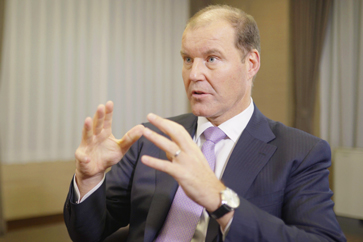
In your opinion, what is particularly unique about life science companies in Japan?
Japan has been a leader in life sciences for a very long time. For example, Takeda was founded in 1781, making it one of the oldest life science companies in the world. Takeda’s engagement in life sciences is more than business. We take a long-term view when it comes to health, and improving health. With strong engagement in health from many Japanese companies and academic sciences, I see the life sciences environment as thriving and very dynamic in Japan.
Where does infectious diseases and global health fit into Takeda’s vision and core business strategy?
Takeda is active in many countries in the world, both in developed and emerging countries. It is true that in our core research we focus more on non-communicable diseases such as oncology, gastroenterology and the central nervous system; however, we see the impact of infectious diseases on lives around the world very clearly. We invest in global health because it is very important for us.
Takeda’s presence in more than 70 countries and our work helping to improve health for all motivates our drive and engagement in global health. Takeda’s vaccines division is especially active in advancing vaccine candidates against diseases such as, dengue, and norovirus, etc., all of which could have great impact on public health, especially in developing countries.
“GHIT is a very innovative model for creating medicines or vaccines against diseases for which there is a lack of R&D funding.”
Takeda’s commitment to global health manifests through both R&D-driven investments and Corporate Social Responsibility (CSR) initiatives. How do the two approaches synchronize?
Takeda is engaged in R&D projects with global impact through our vaccines division; in addition, our CSR initiatives focus on supporting activities to solve social problems in the area of healthcare where we leverage and contribute our expertise in the pharmaceutical industry. We are one of the first industry leaders to work with G8/7 Leaders and the United Nations on health access and global health solutions. This is another way Takeda is contributing its innovation and leadership in global health. In both strategies, Takeda drives to have an impact to improve global health in the world and engages in initiatives with partners to support better access to healthcare as the main goal.
In what way is GHIT a strategic investment for Takeda?
GHIT is a very innovative model for creating medicines or vaccines against diseases for which there is a lack of R&D funding. I think the model has been very, very successful. Investing in it and contributing to its work makes sense for Takeda not only because of our global health interests but also because of the strong capabilities in Japan that can help make GHIT successful.
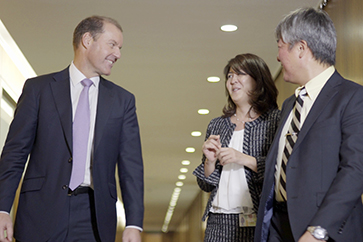
GHIT is now in its fifth year of operations, and Takeda has been a strong partner and Council member every step of the way. In what ways has this partnership influenced Takeda’s overall engagement in global health R&D?
People who work in the pharmaceutical industry are motivated to improve the lives of patients and public health. When they see Takeda’s involvement in GHIT, or support for CSR programs on public health, it makes an impact. Our employees in particular are very engaged and inspired by our collaboration with GHIT and our work in global health because at our core this is why we are in this industry, and why we are working for a company like Takeda.
What are the differences between the R&D innovation process for global health products versus the R&D innovation process for products with traditional commercial markets?
The R&D process for global health requires engagement from multiple partners across sectors, so the collaboration is slightly different from our core process. However, the overall innovation process is quite similar. You need to design the molecule and the medicine, and you need to do the clinical development (Phase I, II, and III, etc.). This is where both processes intersect and are complimentary. As a pharmaceutical company, we can bring our know-how and combine it with the expertise of partners in the international community to work jointly to progress the critical solutions needed through the R&D pipeline and into the market.
One example is Takeda’s partnership with Medicines for Malaria Venture (MMV) to study anti-malarial compounds in the hopes of developing a new malaria drug. This is a noteworthy initiative because Takeda, as a company, does not have strong expertise and experience in malaria. However, Takeda brings in our know-how and capabilities in research and clinical development expertise to support moving the antimalarial compound into clinical studies. The antimalarial compound utilized in this partnership stems from a collaboration between three different professors from the United States and Australia. This example truly illustrates the global health R&D collaboration model of cross-sectoral partners contributing their core expertise into a partnership to address a global health need.
“More projects, more funding, and more partners.”
Looking ahead, in what way do you see Japan continuing to help transform the global health product development process over the next 5 to 10 years?
First, Japan is uniquely positioned because the level of scientific know-how and knowledge is very dynamic – evident from the total number of Nobel Laureates in Physics, Chemistry, and Physiology or Medicine from Japan. This is a critical foundation. Second, the Government of Japan and its leaders are dedicated to global health officially and personally. They have displayed strong leadership in their support of critical global health commitments from the G8/G7 Summits and the United Nations’ initiatives. Third, Japan also has a vibrant pharmaceutical industry, which will continue to push on research.
All these components are vital to transforming R&D and product development for global health – and they are all strong and active in Japan. Very few countries possess all three, and I think this is why Japan is very unique and very well positioned to transform global health product development in the next 5-10 years.
What role can GHIT play to help further strengthen Japan’s unique capabilities?
More projects, more funding, and more partners. I think the ramp-up has been really strong, especially when you consider the fact that GHIT is only five years old and then look at the number of partners, the funding, and the number of projects. It's really impressive.
The affiliations and positions listed in this interview are at the time of publication of the interview in 2017.
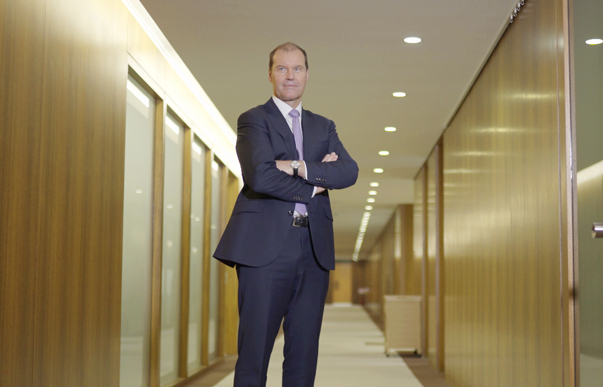
- Biography
- Christophe Weber
Christophe Weber is President and CEO of Takeda Pharmaceutical Company Ltd. He joined Takeda in April 2014 as COO, was named President and Representative Director in June 2014 and was subsequently appointed CEO in April 2015. Mr. Weber has held leadership roles across many different businesses and geographies. Prior to joining Takeda, Mr. Weber held positions of increasing responsibility at GlaxoSmithKline (GSK) including President & General Manager at GSK Vaccines, CEO of GSK Biologicals SA in Belgium, and member of the GSK global Corporate Executive Team. From 2008 to 2010, Mr. Weber served as Asia Pacific SVP and Regional Director at GSK Asia Pacific in Singapore. Mr. Weber holds a doctorate in pharmacy and pharmacokinetics from the University of Lyon, France. There, he also earned master’s degrees in pharmaceutical marketing and in accounting and finance, as well as a bachelor’s degree in statistics.
STAKEHOLDER INTERVIEWSARCHIVES
FUNDING
-
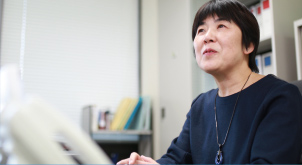
01
Dr. Naoko YamamotoSenior Assistant Minister for Global Health,
Ministry of Health, Labour and Welfare
#
-
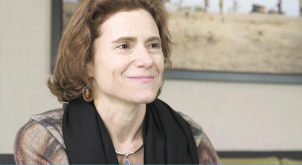
02
Dr. Hannah KettlerSenior Program Officer, Life Science Partnerships
Global Health Program, Office of the President
Bill & Melinda Gates Foundation
#
-

03
Prof. Stephen CaddickDirector, Innovations Division,
Wellcome Trust
#
DISCOVERY
-
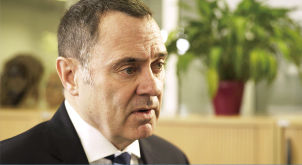
01
Dr. David ReddyCEO
Medicines for Malaria Venture (MMV)
#
-
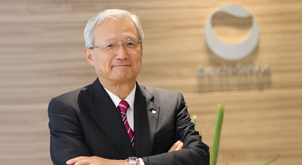
02
Mr. George NakayamaRepresentative Director,
Chairman and CEO
Daiichi Sankyo Company, Limited
#
-
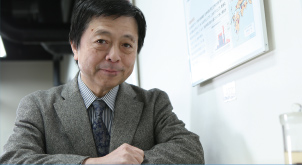
03
Prof. Kiyoshi KitaProfessor Emeritus, The University of Tokyo
Professor and Dean, Nagasaki University School of Tropical Medicine and Global Health
#
DEVELOPMENT
-
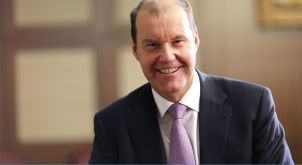
01
Mr. Christophe WeberRepresentative Director, President and CEO
Takeda Pharmaceutical Company Limited
#
-
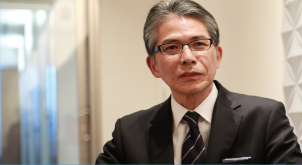
02
Mr. Yoshihiko HatanakaRepresentative Director,
President and CEO
Astellas Pharma Inc.
#
-
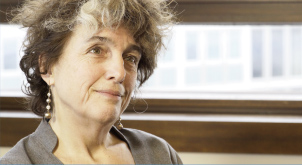
03
Dr. Nathalie Strub WourgaftMedical Director
Drugs for Neglected Diseases initiative (DNDi)
#
ACCESS
-
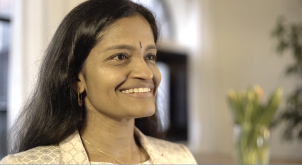
01
Dr. Jayasree K. IyerExecutive Director
Access to Medicine Foundation
#
-
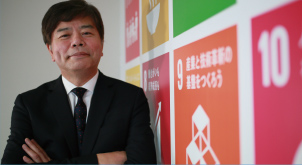
02
Mr. Tetsuo KondoDirector
United Nations Development Programme (UNDP)
Representation Office in Tokyo
#
-
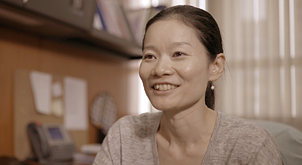
03
Dr. Aya YajimaTechnical Officer
Malaria, other Vectorborne and Parasitic Diseases Unit
Division of Communicable Diseases
World Health Organization Western Pacific Regional Office
#
POLICY
-
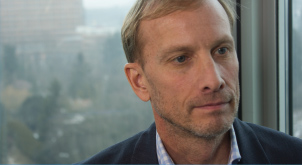
01
Dr. Mark DybulFormer Executive Director
The Global Fund to Fight AIDS,
Tuberculosis and Malaria
#
-
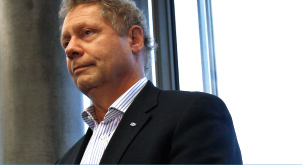
02
Dr. Seth BerkleyCEO
Gavi, the Vaccine Alliance
#
-
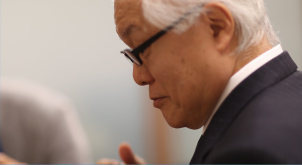
03
Hon. Prof. Keizo TakemiMember of the House of Councillors of Japan
Chairman, Special Committee on Global Health Strategy
of the Liberal Democratic Party's Policy
#

